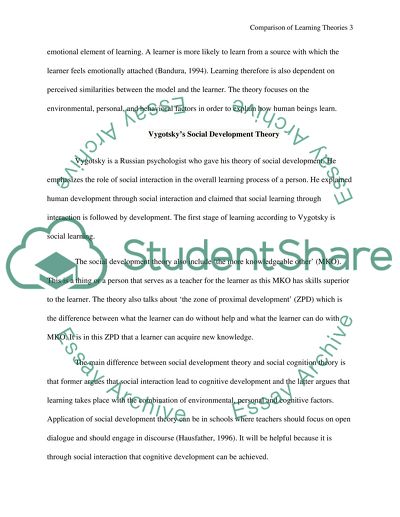Comparison of three learning theories Essay Example | Topics and Well Written Essays - 750 words. Retrieved from https://studentshare.org/education/1431285-comparison-of-three-learning-theories
Comparison of Three Learning Theories Essay Example | Topics and Well Written Essays - 750 Words. https://studentshare.org/education/1431285-comparison-of-three-learning-theories.


